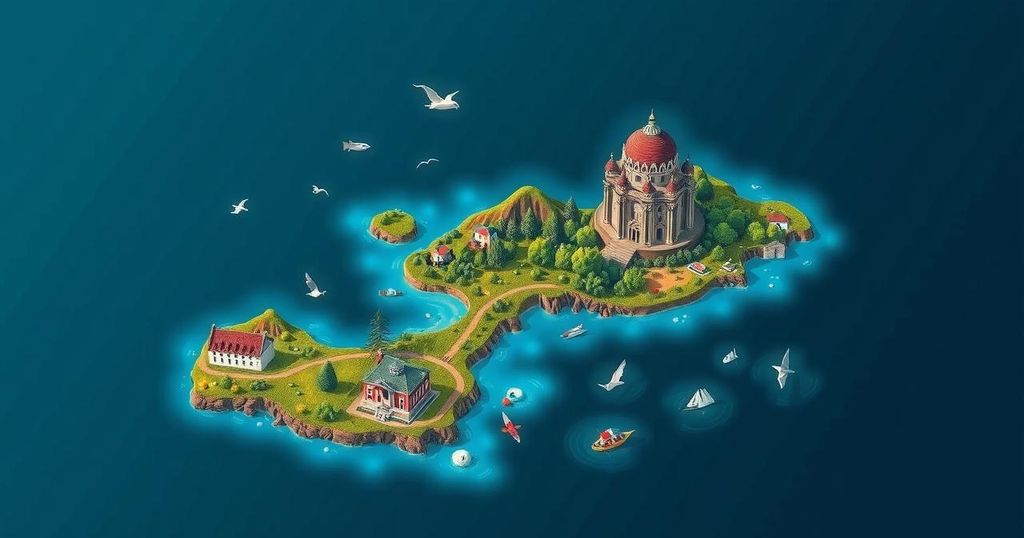Azerbaijan’s President Calls Out Colonialism’s Role in Climate Crisis

Azerbaijani President Ilham Aliyev criticized France and the Netherlands for their colonial practices affecting small island regions at the UN Baku Climate Conference. His remarks focused on the disproportionate impacts of climate change and allegations of environmental and human rights violations in these territories. Aliyev’s comments ignited a diplomatic backlash, highlighting the ongoing challenges posed by colonial legacies in addressing global climate issues.
During a recent meeting at the UN Baku Climate Conference, Azerbaijani President Ilham Aliyev delivered pointed criticisms regarding the treatment of island regions that remain under French and Dutch colonial rule. He argued that these territories in the Caribbean and Pacific are suffering disproportionately from the effects of climate change, a situation he attributes to ongoing neo-colonial governance. Aliyev’s remarks provoked significant backlash from French and Dutch diplomats, as well as Finland’s chief negotiator, who suggested that his commentary detracted from the conference’s objectives. In his speech, President Aliyev underscored the urgent threats faced by small island states, such as rising sea levels and extreme weather events, exacerbated by colonial indifference. He specifically mentioned France’s extensive nuclear testing in Polynesia and its repercussions on environmental health, citing contamination and breaches of ecological safety standards. Furthermore, he drew attention to alleged human rights violations in New Caledonia, where he claimed state violence has led to fatalities and injuries among indigenous populations during recent protests. Aliyev’s criticisms extended to the repression of protests and social media platforms like TikTok in French territories, and he expressed astonishment at the lack of condemnation from European institutions regarding these actions. He reinforced his stance by alluding to controversial remarks by EU officials about global inequities. Subsequently, France chose not to send its Minister of the Environment to the conference, while the Dutch Ministry denounced Aliyev’s assertions as unfounded.
The comments made by President Ilham Aliyev arise from broader discussions about the impacts of colonialism on vulnerable regions, especially in the wake of climate change. Island territories, particularly those still administered by colonial powers, frequently face neglect regarding environmental policies and are among the first to feel the effects of climate disasters. The implications of colonial legacies have garnered increasing attention as global leaders convene to address climate-related issues, leading to tensions when these historical injustices are brought to the forefront in international forums. President Aliyev’s remarks challenge the responsibility of former colonial nations to acknowledge and rectify past harms inflicted upon these territories.
In conclusion, President Ilham Aliyev’s address at the UN Baku Climate Conference highlighted the detrimental effects of colonialism on small island states amid climate change. His criticisms of France and the Netherlands have sparked considerable diplomatic friction, illustrating the complexity of addressing historical injustices within contemporary environmental discussions. As the world grapples with climate change, it is evident that the legacy of colonialism continues to impose grave challenges on vulnerable populations, necessitating urgent dialogue and action from global leaders.
Original Source: aze.media








